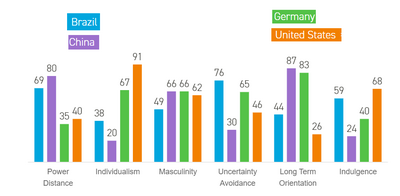
Is Metaculus like wildly overconfident here? https://www.metaculus.com/questions/6615/alcor-to-go-bankrupt-before-reviving-people/
My impression was that most rationalists who do cryonics think it's extremely unlikely but the payoff is huge. Definitely not like "60% chance it'll work for at least someone".
"Hey, can you switch instances? Your admin favorited a joke that I didn't appreciate once. Might need to block you otherwise. Oh, and that crowdfunding platform you use? Back in 2006 they let an organization I don't personally align with use their platform. You should abandon that. Also, -"
Shhhh. Let people enjoy things. I am all for being socially conscious but we can't boycott everything. We are so tired. Please go outside.
mastodon.art has blocked outerkosm.us for (officially, per their website):
Federates with the usual suspects
I don't know what this means, but I believe it's essentially a form of penalizing coercion tactic/justification used to leverage other instances into joining the sanctioning of whatever entities they believe deserve sanctioning. Expressed here: https://outerkosm.us/notes/9arsonzgmyWorse is that mastodon.art did not only block my instance---mastodon.art publicly slandered my instance as harboring child sexual exploitation material (CSEM), Naziism, hate speech. ---And, encouraged other instances to join them in #fediblock! Post found here: https://mastodon.art/@Curator/109799802882253307
mastodon.art's claims are a complete fabrication. At the time of their decision to maliciously slander/fediblock outerkosm.us, the instance itself wasn't 36 hours old! Not only do I not tolerate any such content or behavior, but I know for a fact that no such material exists, nor has ever existed, on my instance.
I never once received any reports, complaints, or communications from mastodon.art administration, nor any other administrators or users of remote instances, regarding any controversial, objectionable, or offensive content from my instance or the users therein. In fact, at the time of writing this, I've not received any reports or complaints from anyone whatsoever about anything!
I replied to mastodon.art's post asking for clarification and expressed how upset I was that they would do something so arbitrarily cruel to a brand new, small instance such as my own: https://outerkosm.us/notes/9asjjhl7me
I messaged the administrator of mastodon.art and furthermore emailed their administrative account again asking for clarification and expressing my discontent. I never got a response.
Blocking an instance is fine, it's part of the administrative process of the fediverse; It's a fact of life. But, to publicly lie and cruelly slander an instance is another matter completely. ---Especially when doing so to abuse the Mastodon #fediblock weapon. For an instance like mastodon.art, with nearly 8,000 users, to do this... it's the fediverse equivalent of dropping a nuclear weapon on a tiny country. And, for no reason, at that! I do not understand why they would do this. My instance did nothing to them!
I can't interpret the actions of mastodon.art here as anything short of completely random cruelty: purely motivated by a desire for sabotage. A brand new instance joins the fediverse and a giant Mastodon instance immediately broadcasts fraudulent claims to over 8,000 people---to the entire fediverse---that this new instance is harboring or disseminating CSEM, Naziism, etc.. And specifically tells users "not to interact". Doesn't elaborate further. Doesn't respond to questions. Doesn't explain anything.
I just don't understand.
I'd be lying if I claimed I wasn't upset, or that this didn't bother me.
10 Image #CaptionTips from a transcriptionist:
1. Any words are better than nothing.
2. You don't need to say it's "a picture of…" screen readers will already say it's an image.
3. Start with the framing or format (i.e. close up, landscape, meme, text).
4. Think about the reason you're posting the pic and describe that first, add background details if you have time.
5. Pretend you're talking to someone on the phone and want to tell them about this cool thing you're looking at.
6. Transcribe any and all text in the image, even if it's the only thing you do.
7. If you've described the image in your post, you don't need to copy and paste it again in the caption. But again, don't leave it blank, just put something like "as described."
8. You can add small subjective notes, but don't give too much interpretation of the image in your own opinion.
9. Caption jokes are fun, as long as they still describe the image objectively.
10. Use punctuation, and capitalize words properly. A lot of us have interacted with this tech when calling customer service or talking to Siri, so keep in mind that you're writing for a computer to read, and it needs all the help it can get.
Interesting, I didn't know this about the half-life of S-modafinil. A lot of people I talk to complain about the long half-life of R-modafinil, so it seems like switching to esmodafinil would be a major win for them:
https://moreisdifferent.substack.com/p/could-s-modafinil-be-the-new-caffeine
@zebrask so by analogy, you could do something similar for Sunni/Shia. Start with geography, then go to culture, then draw cultural comparisons across established dimensions.
@zebrask It seems like the most resonant way to draw the Cath/Prot distinction -- in the modern day, for practical purposes -- is to point to the cultural-ethnic geography:
Prots carved off lots of northern/Germanic cultures, and so have a lot of ethnic norms you'd find there (in Hofstede's dimensions, those include higher individualism and lower power distance).
By contrast, Caths kept lots of southern/Med cultures (collectivism, high power distance).
https://en.m.wikipedia.org/wiki/Hofstede%27s_cultural_dimensions_theory
Or, sticking with religion, I feel like maybe the Catholic church vs. the Orthodox church might be the Christian version of "US vs Canada", since I get the impression that the Orthodox church is similarly hierarchical with highly formal rituals, but the hierarchy and rituals are slightly different (they even do their holidays at slightly different times).
Is there an equivalent comparison for Sunni vs. Shia? Or is it more like asking people to compare "People from Canada" with "People from the US", where there are a bunch of small differences, and Canadians in particular don't like being mistaken for Americans, but there's no overarching theme to the differences, it's just slightly diverging cultures.
It seems to me that Catholics and Protestants are fairly easy to compare, with the most broad-brush explanation of the differences being that Catholicism has a strongly hierarchical arrangement of religious authority while most Protestant denominations have more decentralized authority. They disagree on a bunch of minor bits of doctrine that probably most people don't care about, the big differences are around the culture of religious authority and the degree to which rituals are formalized.
I feel like every time someone is asked to explain the difference between Sunni and Shia, people give the same incredibly unsatisfying answer about the schism arising from a disagreement about who Mohammed's designated successor was.
No one ever seems to answer with the thing that people actually want to know, which is "What are the differences between these two groups *today*?" I'm not even sure I know the high points of the differences.
I looked at 325 psychology study replication results today, and the best simple rule I found for telling if a study would replicate is this:
When the original study's p-value was at most 0.01, about 72% of the papers replicated.
Whereas when p>0.01, only 48% replicated.
Others have found similar results.
For instance, @uebernerd has suggested p=0.005 as a cutoff:
I made an open source mastodon web client with a user-controlled algorithmic feed and threaded posts. It's not done yet, and has some rough edges, but it's to the point where I'm using it as my main feed reader. https://www.jefftk.com/p/introducing-shrubgrazer
The phrase "attention passengers" makes sense for auditory announcements, but not for textual signs. https://www.jefftk.com/p/attention-passengers-not-for-signs
The pickup truck was a horrible mistake, but I think that was specific to the lemon I bought and not to the idea of owning a pickup truck.
@zebrask "Yes. Yes. I *have* been traumatised by living in a society without priorisation or numeracy. I would like to see someone."
The email says they will provide students and staff "the support they need to process this and other recent events."
I can only hope that this support takes the form of a course in statistical literacy and a warning against reading the news, but somehow I suspect it is just going to attempt to validate the narrative that it is right to think about extremely rare violence and to spend our precious life trying to reduce extremely small but salient risks.
Seriously, I'm sorry that the media tricked you into caring about unimportant stuff that you can do nothing about, but please don't take it out on my inbox.
- Site
- https://rask.z24.us
- Location
- Somerville, MA






